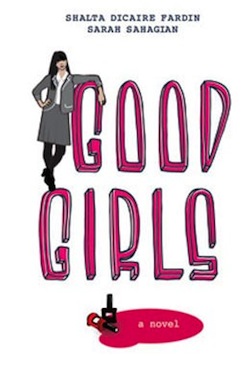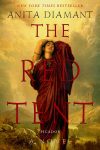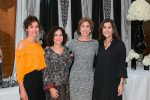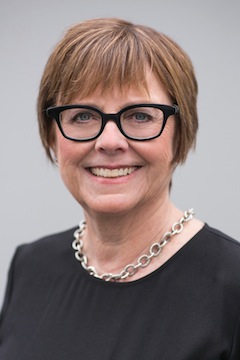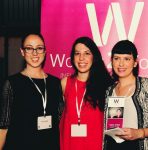Goldie Kassen at Louis Brier Home and Hospital’s Purim party last year. (photo from Barbara Taranto)
There are not many news stories in print or online that laud the everyday work of women. Occasionally, studies are published regarding the status of women’s salaries relative to men’s, the position of women’s roles relative to men’s, the division of labour in the household, etc., but very little is published about the everyday life and sacrifices of women. When stories are published, they are most often about how women have contributed, as a female actor in a traditional male role, to the social and economic welfare of the greater community.
I do not have many “heroes.” I never quite got the appeal of adoring a public figure or wanting to model myself after a stranger regardless of his or her qualities. One person I do admire, however, is Justice Ruth Bader Ginsberg – obviously for her remarkable contribution to the U.S. Supreme Court, her leadership and her example to American women – but more for the non-public and under-appreciated value she has added as a mother and a grandmother.
Bader Ginsberg is very much like Queen Esther of Purim – a woman with a private life who serves the greater good in the public sphere. There were not, and are not, many opportunities to have a life like hers. But, ordinary women, women not in the spotlight, have been serving the greater good throughout human history – volunteering in the community, giving time, food, sustenance and support to help their communities not only survive, but thrive.
When I grew up, I often came home from school and stopped at the Jewish community centre to see my mother – Goldie Kassen – who was working in the kitchen with the other women of Hadassah, an organization’s whose name is Queen Esther’s Hebrew name. The women of Hadassah were very active in Saskatoon. There wasn’t a week that went by that they weren’t involved in some sort of social action or charity event. And, on the days they were not busy with Hadassah, they were involved in the sisterhood at Congregation Agudas Israel, performing vital ritual tasks for the mikvah, the chevra kadisha or distributing mishloach manot (loosely translated as gift baskets) on Purim.
This culture of volunteerism that was widespread and common in my youth seems to have disappeared. Many smaller Jewish communities do not have the congregation or the means to support these activities and many services have been taken over by professionals. Frankly, many women understandably do not want to volunteer for no pay.
When my father, z”l, died, my mother left Saskatoon and moved to Vancouver. She immediately volunteered for a seniors group, Hadassah and the sisterhood at Temple Sholom. She became an active member of her new community by giving first and receiving warmth and welcome in return.
For the past 28 years, my mother has volunteered at the Louis Brier Home and Hospital. She started out as a salesperson, one day a week, in the gift shop. Over the years, she took on more and more responsibility. Today, she manages the staff and the staff schedule. She does the buying for the shop, she does the books for the shop and she does special requests for those who have no family or aid. She works four days a week, every week.
The proceeds from the shop have been used to purchase diagnostic medical equipment, hospital beds, a barbeque for the residents and much, much more. She greets all the customers in a quiet and gentle way, and I know she is loved for her patience and her concern.
On the Louis Brier’s website, there is a very brief paragraph about the shop. No mention is made of the women who work there, not that they expect it, but it would be nice. I know that the shop is an integral part of the life of the residents and the staff at the home. I know that there are not many women left like my mother.
So, when my mom called and told me she was going to the Purim party last year as Queen Esther, I was especially proud. She was worrying over what dress to wear. In the end, she chose the evening gown my father bought her in Jerusalem in 1962. It was a beautiful dress then and it is a beautiful dress now. More importantly, the woman wearing the dress is beautiful – as beautiful as Queen Esther and as important as all those women who have kept the traditions alive and without whom we would be impoverished.
Barbara Taranto lives in Tel Aviv. A version of this article was published last year on her blog, btarantoaretz.com.

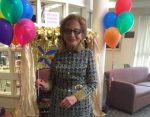
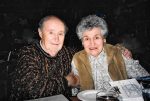

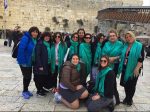
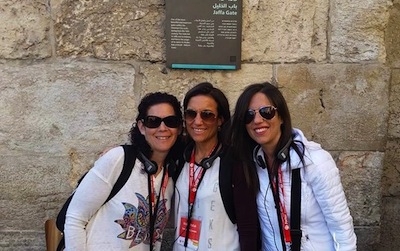
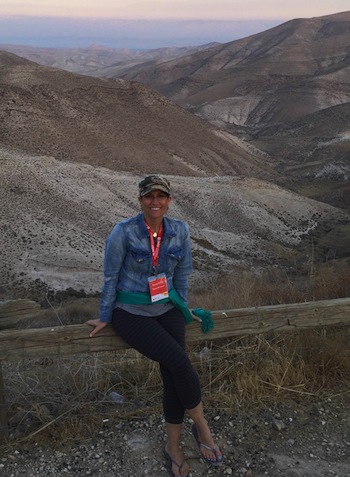
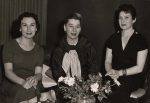
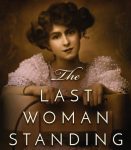
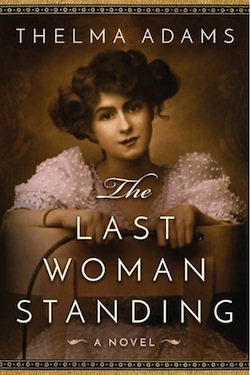 The daughter of Prussian Jewish immigrants who eked out a living on her father’s income as a baker, Josephine cannot bear to be contained by the strictures of society, her religion and her mother, whose story of coming to America is truly tragic. “I loved my mother but wouldn’t follow her down her path of righteousness and sorrow,” says Josephine in The Last Woman Standing. “We lived in a new world. She dwelled among old dybbuks.”
The daughter of Prussian Jewish immigrants who eked out a living on her father’s income as a baker, Josephine cannot bear to be contained by the strictures of society, her religion and her mother, whose story of coming to America is truly tragic. “I loved my mother but wouldn’t follow her down her path of righteousness and sorrow,” says Josephine in The Last Woman Standing. “We lived in a new world. She dwelled among old dybbuks.”